No products in the cart.
Reflecting On “Reflections, An Oral History Of Twin Peaks” With Author Brad Dukes
For his book, Reflections, An Oral History of Twin Peaks, Brad Dukes spent years interviewing over a hundred people who all had their hand in creating the world of Twin Peaks. Here's our interview with the author.
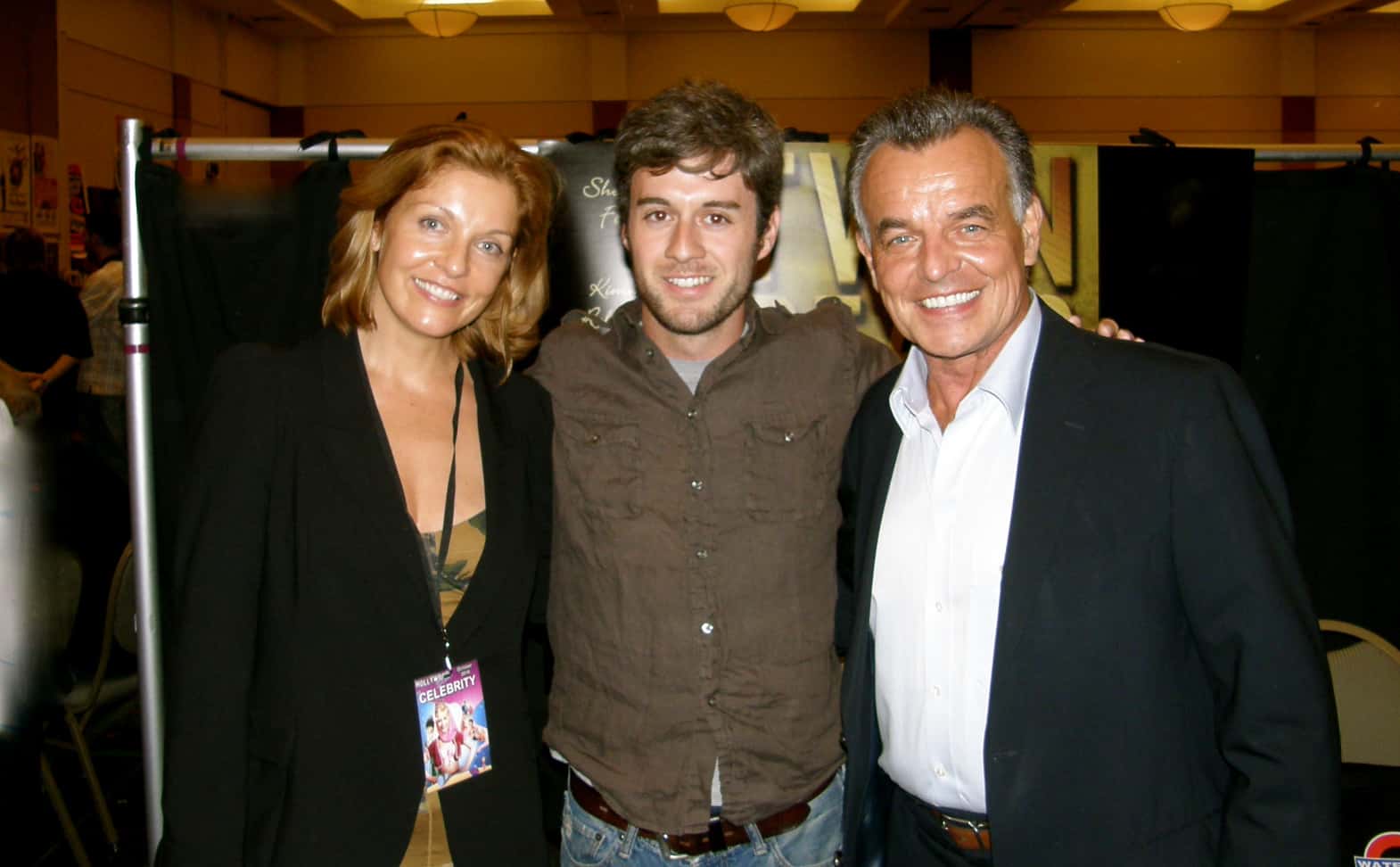
A little while ago, Welcome to Twin Peaks excitedly announced —and highly recommended— Reflections, An Oral History Of Twin Peaks, the upcoming Twin Peaks book by Brad Dukes (pre-order it from Amazon). The author spent the past few years interviewing over a hundred people who all had their hand in creating the world of Twin Peaks, so it’s about time we interview him for a change.
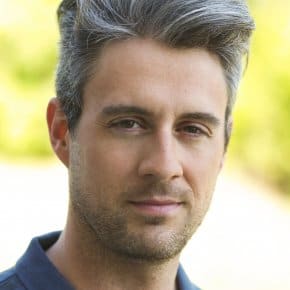
WELCOME TO TWIN PEAKS (WTTP): Congratulations, Brad! Reflections is hands down the ultimate Twin Peaks compendium and it has instantly become my favorite book about the show. How did you pull this off?
BRAD DUKES (BD): Thanks for having me. I’m flattered! The book really kicked off in August, 2012. I had been interviewing cast and crew members for about a year on my website at that point and having fun with it. My wife suggested I write a book, and soon enough I just went for it. I first asked Mark Frost if he was okay with the project, which he was, and things just took off from there. I really wasn’t sure how it would all be put together at that point, but I specifically remember an oral history from SPIN in 1998 about the Beastie Boys, and I thought that was a wonderful way to tell a story from many differing viewpoints, especially with some clever editing. I just kept asking people to talk to me, and nearly everyone was up for it.
WTTP: You spoke to nearly everyone involved with the show. Quite a challenge! Can you tell me a bit about your prepping work? And how did those interviews eventually happen?
BD: Towards the beginning, I put together a binder of spreadsheets that told me who all was in each episode: actors, directors, screenwriters; and I also studied old articles from the New York Times and other newspaper archives. The press was nuts about Twin Peaks, even when the ratings crashed. I had a notebook full of ideas for chapters and story threads and watched the series more times than I’d ever like to admit. I also had interview questions for everyone I could think of laid out in advance in the binder if someone called and was ready to talk.
The journey of conducting these interviews was one of the great times of my life. I basically kept two iPads (to record conversations) on my person, nonstop for a year and a half because at any given moment, someone might call me to talk – and I never wanted to blow an opportunity. Nearly all of the interviews took place over the phone, a few via email, and a couple in person. Once I had exhausted my search on social media to find people, I began approaching agents and managers to talk to some of the bigger names. Many of them did not respond to emails, or just gave me an immediate “no.” So, I just had to call and badger them until they took me seriously. A few other folks were more difficult to find (or no longer in the business) and I had to get creative.
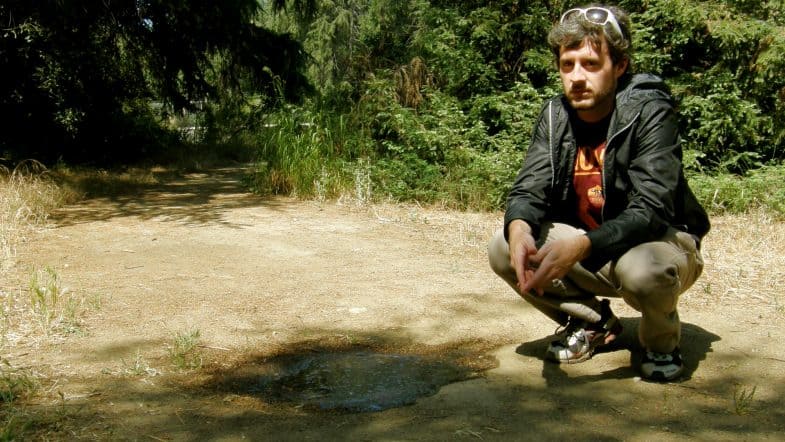
WTTP: Who were the hardest people to track down? Who is your proudest catch? And who was surprisingly easy to get in touch with?
BD: Wendy Robie was one of the toughest people to find; she stays very busy with repertory theater in the Midwest and proved to be elusive. I believe I had to call the director of one of her productions and beg him to tell her about the book. She was incredibly kind and sincere when we finally talked, and offered up some really wonderful stories. Angelo Badalamenti was not easy to get a hold of either. I only reached him through a mutual connection. Same with Richard Beymer. There were a handful of people I never found, including Everett McGill and Eric DaRe. I adore their work on the show and I wish I could have talked to them. All avenues were exhausted.
I must say I’m very proud to have Michael Ontkean in the book. He really hasn’t ever said much about his time on the show, and his insight and word choice was just captivating to me. A very thoughtful and unique guy. As for “easy,” I am pretty good friends with Kimmy Robertson and Charlotte Stewart, so that didn’t take much convincing.
WTTP: Because their characters are so mythical to me, I find it highly disorienting when I actually meet Twin Peaks cast members —although surprisingly, I felt immediately at ease with Sherilyn Fenn. Did you experience any nervousness or overexcitement, and how did you handle that?
BD: No matter who it was, I approached every interview with intrigue and excitement, and also with a huge sense of “This is vital. Make sure you cover all the bases. Open as many doors as possible.” Ray Wise was probably the first big interview I completed and I was a nervous wreck beforehand. But, Ray was so friendly off the bat and put me at total ease. We talked for seventy-five minutes and at the end he said, “I hope I gave you something you can use in your book,” which I found funny and so very earnest. I was on the edge of my seat for the whole time! I was so nervous to speak with Joan Chen and Piper Laurie for some reason, but those conversations settled in quickly and all turned out great.
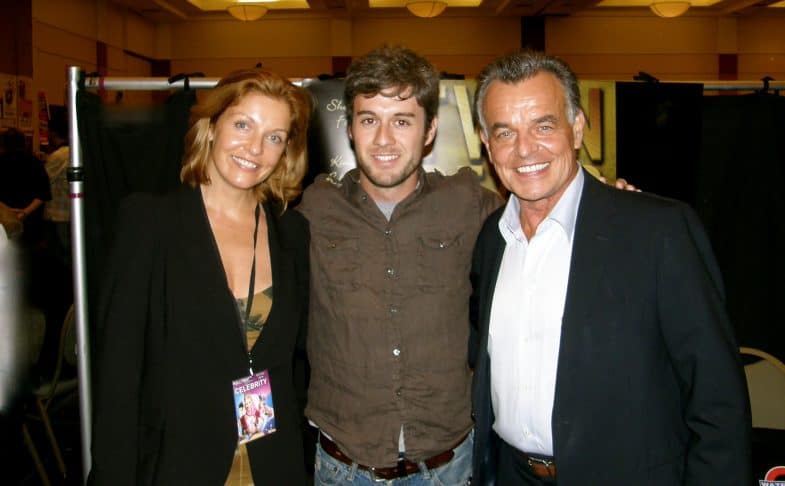
WTTP: Many memories have faded away by now. How did you help interviewees dust them off? Were there any conflicting stories? And who surprised you with their vast Twin Peaks knowledge?
BD: The second half of the second season was very difficult to document, but I feel I was able to include a lot of previously uncovered ground. There was a general sense of that time period disappearing into the collective subconscious of everyone – so I really had to pinpoint the stories I wanted to illuminate and really press people on them, and hope that other threads would open up. It helped to talk about certain directors who came in at different points, namely Diane Keaton and Uli Edel. The final episodes leading up to the finale were also tough – but fortunately I was able to speak to a few folks who exclusively worked on the show at that point, like Billy Zane, and directors like Steve Gyllenhaal, James Foley, and Jonathan Sanger. Everyone seemed to remember the first season quite vividly.
Wendy Robie impressed me the most with her vast knowledge of the series. I was amazed at all the details she remembered. Tina Rathborne covered her episodes scene-by-scene with me which was really fun, and I must say Episode 3 (which she directed) is near the top of my favorites. Duwayne Dunham was also really insightful. He edited the pilot, and in my opinion really set the pace of the series. If you pay attention to the episodes he directed, they all stay true to that initial vibe.
The biggest surprises came from someone whose name likely doesn’t ring bells within Twin Peaks fandom, but Ken Scherer was the chief operating officer of Lynch/Frost Productions and offered up a very revealing picture of what it was like running the business side of things: merchandising, dealing with the press, and a tumultuous relationship with ABC. Aside from Tony Krantz, I don’t know who else had constant access to both David and Mark throughout the series. It was very interesting to hear how that relationship evolved.
Another surprise was talking to some of the former ABC executives. I know they have a huge black eye in the Twin Peaks legend, but I think they all loved the show. Chad Hoffman was the network executive who really championed Twin Peaks and pushed for the pilot to be made. Unfortunately, he left ABC before the show aired. Who knows what would have happened if he had stuck around. We may not be having this conversation today if not for him, as well as Brandon Stoddard, the President of ABC Entertainment at the time. They were behind China Beach, Thirtysomething – some huge risks at the time.
There were quite a few conflicting stories, especially when it comes to the extent of David Lynch and Mark Frost’s physical presence within the late second season production. I tried to piece the book together so readers could come to their own conclusion in that regard. I definitely had to walk some people through certain sequences of events to unlock a few memories. Most of the directors reviewed their episodes before the interview, so that also was a huge help.
WTTP: Did everyone still talk with passion about the show, or were there any negative feelings? No need to call any names.
BD: There wasn’t one person I talked to on the record that looks back on Twin Peaks in a negative way. I think everyone would agree that the series ran into a few brick walls, but there was great potential for more stories to be told. Literally, some careers were born, resurrected, or ended with Twin Peaks. It was a very concentrated and intoxicating time, even if you were a production assistant. Above all, everyone was vocally gracious and thankful to Mark and David for including them in the journey. Everyone took something with them.
WTTP: Any conversations that were particularly memorable?
BD: Talking to Michael Parks was surreal. He is a cinema God to me. His body of work with Tarantino, Then Came Bronson – it was just a dream interview. I absolutely loved talking to Harley Peyton. With his conversational style and sense of humor, there’s absolutely no doubt he was behind some of Albert Rosenfield’s greatest hits, not to mention some of Agent Cooper’s classic lines. There was also a general sense (among most people I talked to) of him being in charge of the show for a short while as well, so he had some war stories to share. Notice he didn’t script an episode of On the Air. Miguel Ferrer was also a riot to talk to, and Kyle MacLachlan was such a gentleman. He obviously holds the character of Agent Cooper close to his heart.
WTTP: Name one of your favorite anecdotes that you learned by talking to cast and crew?
BD: I’ll give you a funny one and a serious one. Lesli Linka Glatter revealed that she was the humpback servant at One Eyed Jack’s in Episode 7, which just killed me. It was so funny and random and I’d never heard that before. I believe she also revealed that later at the USC panel series last year, so I was a little bummed I couldn’t put it in the book first. Although, I did get to include a funny picture of her in costume with Richard Beymer. Speaking of anecdotes, I tried my hardest to figure out who played little Ben and Jerry Horne in Episodes 15 and 18. It remains a mystery.
On a serious note, I was amazed that David Lynch wasn’t more involved with launching the post-Laura Palmer phase of the show. Tricia Brock wrote that episode (17 – after the killer dies) and said she never met with David or talked with him. That blows my mind. Tina Rathborne directed that episode and added that she never met with Mark and David to discuss the episode, or the trajectory for where the show was going. I think if you look back on the arc of Twin Peaks – that was the most pivotal moment to truly ensure the lasting survival of the show – at least in a storytelling sense.
WTTP: You didn’t get to interview David Lynch. That’s his loss, not being part of this excellent book. But really, how do you feel about it?
BD: I think of Reflections as a big reunion that really would not happen otherwise. You’re never going to get all of these people in a room again, so this is the next best thing, I think. David was receptive to the idea at first, but ultimately wary of other people getting their facts wrong on the record, as has happened before in his opinion. Memories are imperfect, and that’s the beauty and mystery of it all. Believe me, I tried my best and he wouldn’t budge. I am assuming he will read Reflections, love it, and want to participate in a future edition down the line. That’s an open invitation! Same goes for anyone else I couldn’t connect with.
WTTP: The way you edited this 350-pages book is very impressive, but I’m sure there are still some stories left untold. Can you share any darlings you had to kill during editing?
BD: There were so many things I had to cut! It was excruciating. I need to find a way to preserve some of them so they can be enjoyed. Jonathan Sanger, who directed Episode 26, actually introduced David Lynch to Mel Brooks, leading to The Elephant Man. It was a very interesting story with a few twists and turns, but just didn’t fit into the book’s narrative.
The same with Tony Krantz. He convinced David to enter the world of television and told me he really functioned as an uncredited producer on Twin Peaks. He was a television agent and quite a few of his clients ended up on the show. There was a plan to actually produce a movie between the second season and assumed third season of Twin Peaks where Audrey goes to Hollywood and is enveloped in a murder mystery. David was going to direct it and work it into the narrative of the show before it came back. We all know that idea turned into Mulholland Drive somehow, but I must say there were some really ambitious plans before the second season kicked off. That all evaporated seemingly fast. Tony also recounted Mulholland Drive’s rocky genesis with ABC years after. Another fascinating story that just didn’t fit in the book.
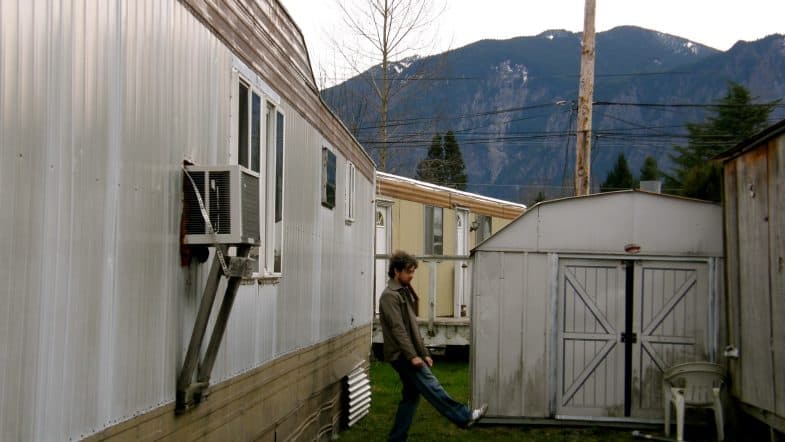
WTTP: What can you tell me about all those previously unpublished behind the scenes photos? How did you dig those up?
BD: All of the photos in Reflections were taken on set by the cast and crew. Richard Hoover (Production Designer) and Carla Fabrizi (Makeup Stylist) literally had boxes of photos that no one has ever seen. It was pretty staggering to see them. My favorite has to be Carla’s shot of Kyle MacLachlan and Frank Silva with mirrored blood stains on their face.
WTTP: Like me, you saw Twin Peaks at a very young age. Do you think that’s one of the main reasons why you’re still so dedicated to this show that you wrote a book about it?
BD: I suppose so. I watched the show when I was nine years old, and didn’t watch it for a few years afterward. It scared me to death, even when I revisited the series in high school. While I treasure every episode of Twin Peaks, the stories of the people behind the show intrigue me even more, and that is what ultimately compelled me to make this book. All of these people in the book – even the ABC guys – are artists. They all had a hand in creating a magic moment in television that will never die. To earn their trust and have the privilege of documenting their lives, work, and legacy – it was great fun and a huge honor.
WTTP: Thanks so much for your time, Brad! Not just for this interview, but the countless hours of work and the energy you’ve put into this book. I hope it will find its way into every Twin Peaks fan’s collection!
The book will be out July 15, 2014. Pre-order Reflections, An Oral History Of Twin Peaks from Amazon today!
Available at Amazon US, Amazon UK, Amazon France & Amazon Germany.
To conclude, here’s the full list of the interviewees included in this book:
- Don Amendolia – Emory Battis
- Mädchen Amick – Shelly Johnson
- Dana Ashbrook – Bobby Briggs
- Phoebe Augustine – Ronette Pulaski
- Angelo Badalamenti – conductor and orchestrations
- Randy Barbee – series assistant director
- Robert Bauer – Johnny Horne
- Gavin de Becker – founder, Gavin de Becker and Associates
- Vinnie Bell – guitars
- Richard Beymer – Benjamin Horne
- Tricia Brock – screenwriter, episodes 17, 23
- Ian Buchanan – Dick Tremayne
- Frank Byers – series director of photography
- Michael R. Caputo – cofounder, Citizens Opposed to the Offing of Peaks
- Joan Chen – Jocelyn “Josie” Packard
- Graeme Clifford – director, episode 12
- Catherine E. Coulson – Margaret Lanterman a.k.a. the Log Lady
- Julee Cruise – Roadhouse singer; vocalist
- Lance Davis – Martin Padley as Chet Weems
- Caleb Deschanel – director, episodes 6,15,19
- Mary Jo Deschanel – Eileen Hayward
- Duwayne Dunham – editor, pilot episode, episode 8; director, episodes 1, 18, 25
- Uli Edel – director, episode 21
- Robert “Bob” Engels – series screenwriter and season two co-producer
- Carla Fabrizi – makeup artist
- Gregg Feinberg – series producer
- Sherilyn Fenn – Audrey Horne
- Miguel Ferrer – FBI Agent Albert Rosenfield
- James Foley – director, episode 24
- Mark Frost – series cocreator, executive producer, screenwriter, and director
- Scott Frost – Mark Frost’s brother; screenwriter, episodes 15, 21; author, The Autobiography of FBI Special Agent Dale Cooper: My Life, My Tapes
- Warren Frost – Mark Frost’s father; Dr. Will Hayward
- Lori Eschler Frystak – series music editor
- Ron Garcia – director of photography, pilot episode and episode 2 dream sequence
- Rick Giolito – Mark Frost’s brother-in-law; Jason Dimbo as Montana
- Lesli Linka Glatter – director, episodes 5, 10, 13, 23
- Peter Michael Goetz – Jared Lancaster as Evan St. Vincent
- Barry Gremillion – location liaison, season two
- Stephen Gyllenhaal – director, episode 27
- Jules Haimovitz – former president and chief operating officer, Spelling Entertainment
- Joshua Harris – “Little” Nicky Needleman
- Gary Hershberger – Mike Nelson
- Chad Hoffman – former vice president of drama development, ABC
- Todd Holland – director, episodes 11, 20
- Richard Hoover – series production designer
- Michael Horse – Deputy Tommy “Hawk” Hill
- Tim Hunter – director, episodes 4, 16, 28
- David Patrick Kelly – Jerry Horne
- Tony Krantz – former television agent, Creative Artists Agency
- Kinny Landrum – synthesizer
- David J. Latt – producer, pilot episode
- Piper Laurie – Catherine Martell/Mr. Tojamura
- Sheryl Lee – Laura Palmer/Maddy Ferguson
- Gary Levine – former director and vice president of drama development, ABC
- Robyn Lively – Lana Budding Milford
- Kyle MacLachlan – Special Agent Dale Cooper
- Sara Markowitz – series costume designer
- James Marshall – James Hurley
- Annette McCarthy – Evelyn Marsh
- Leslie Morales – set decorator, pilot episode
- Philip Carr Neel – series associate producer
- Michael Ontkean – Sheriff Harry S. Truman
- Michael Parks – Jean Renault
- Van Dyke Parks – Harold Racine
- Harley Peyton – series screenwriter and season two producer
- Art Polhemus – engineer
- Tina Rathborne – director, episodes 3, 17
- Brenda E. Reed, neé Mathers – Caroline Earle
- Al Regni – tenor saxophone
- Kimmy Robertson – Lucy Moran
- Wendy Robie – Nadine Hurley
- Michael Saltzman – former publicist, Lynch/Frost Productions
- Jonathan Sanger – director, episode 26
- Ken Scherer – former chief operating officer, Lynch/Frost Productions
- Philip Segal – former programming director, ABC
- Jonathan P. Shaw – series editor
- Charlotte Stewart – Betty Briggs
- Brandon Stoddard – former president of ABC entertainment
- Carel Struycken – the Giant
- Mak Takano – Jonathan Kumagai/Mr. Lee
- Russ Tamblyn – Dr. Lawrence Jacoby
- Paul Trejo – series editor
- Lenny Von Dohlen – Harold Smith
- John Wentworth – series postproduction coordinator and associate producer
- Ray Wise – Leland Palmer
- Alan Wurtzel – former vice president of research, ABC
- Grace Zabriskie – Sarah Palmer
- Billy Zane – John Justice Wheeler






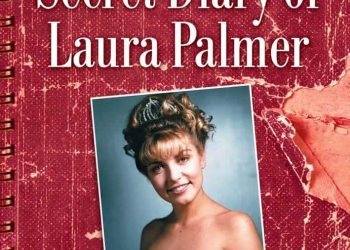
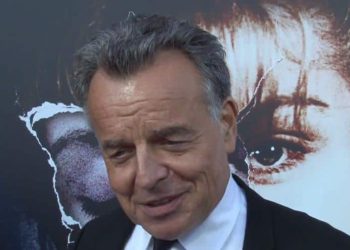
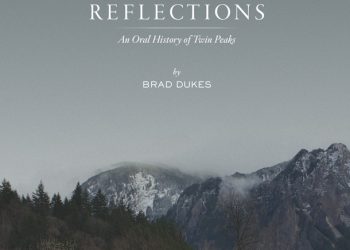
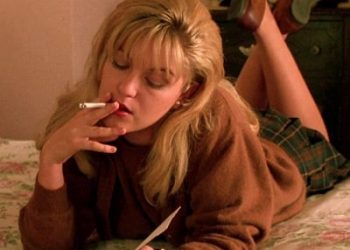
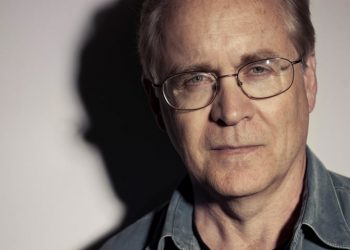

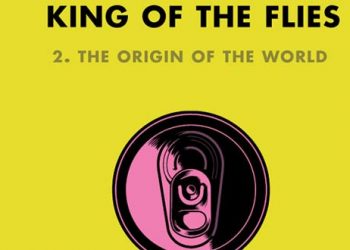

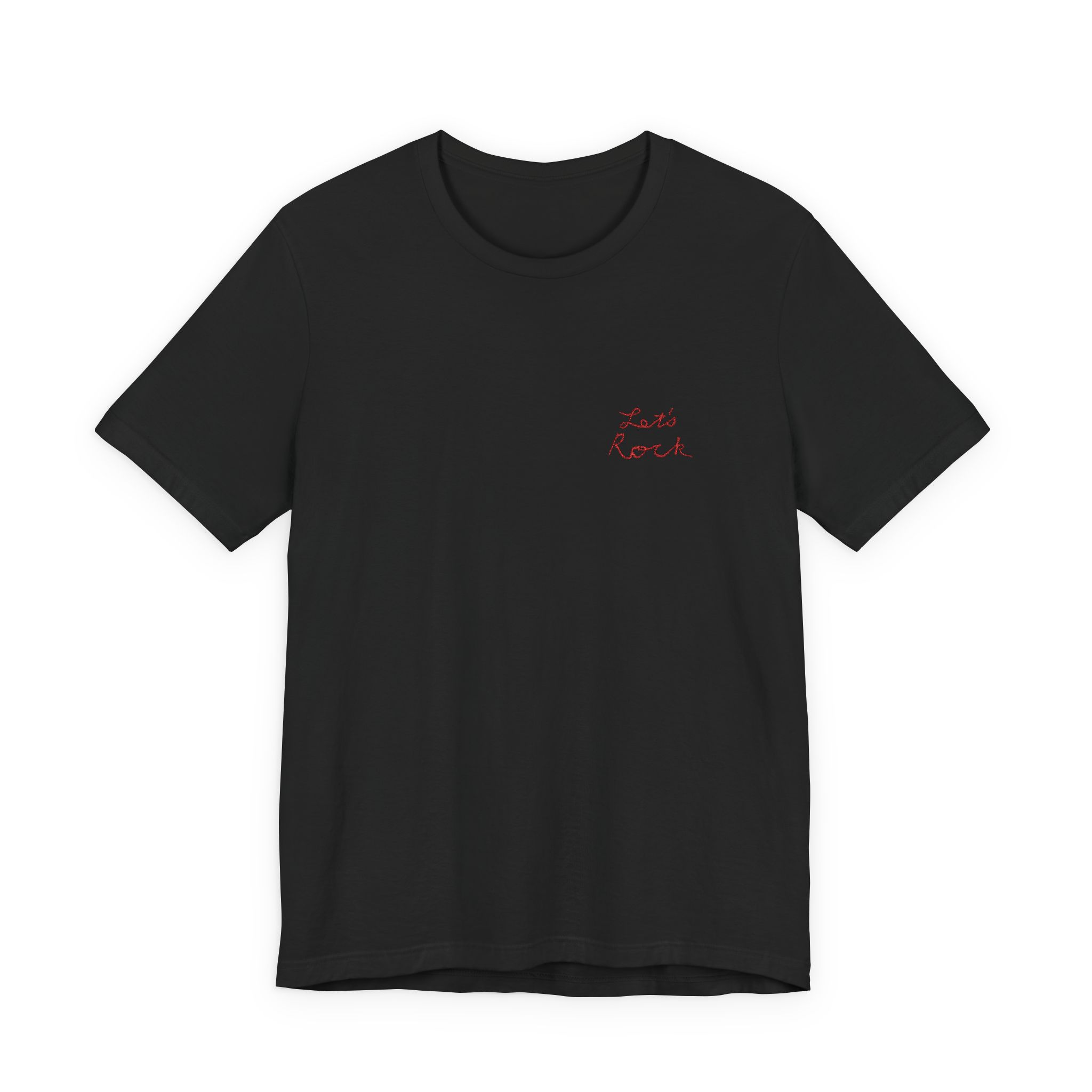


Easily the best book on TWIN PEAKS I’ve read…it’s wonderful. I hope Brad decides to do a follow-up covering FIRE WALK WITH ME.
I recently read this book and it was excellent: well-organized, well-written, and very entertaining. I don’t think the omission of Lynch was such a bad thing: I note that in certain documentaries (“The Kids Are Alright” about The Who, and “The Compleat Beatles”), the documentary makers didn’t actually interview the main subjects of the documentaries themselves — it would have overwhelmed the documentary. But, that being said, it would be neat if a Lynch interview could be added to another edition, perhaps as an appendix.
Does anyone have any info on short/Tall Press? This looks suspiciously like a selfie. (If the book is self-published AND Dukes had made that crystal clear by listing himself as the publisher, I might consider buying it. As is, this looks like another selfie trying to masquerade as traditionally published (And, therefore, a survival of the traditional vetting and editing process.) If the book is self-published, no way am I supporting this level of dishonesty. NOT OK. Is there really such a thing as short/Tall Press, that has editors who are in no way related to Dukes, i.e. who do rigorously vett and sometimes REJECT submissions. In other words, is short/Tall Press really a publisher or just some lame pseudonymn?
Kell, “Short/Tall Press” is “some lame pseudonym”, and that’s entirely beside the point, because Reflections is THE book which brings the making of Twin Peaks to life.
Around a decade from now, there will be a t.v. show about Twin Peaks, based on Reflections (and it will be a MAGNIFICENT Show).